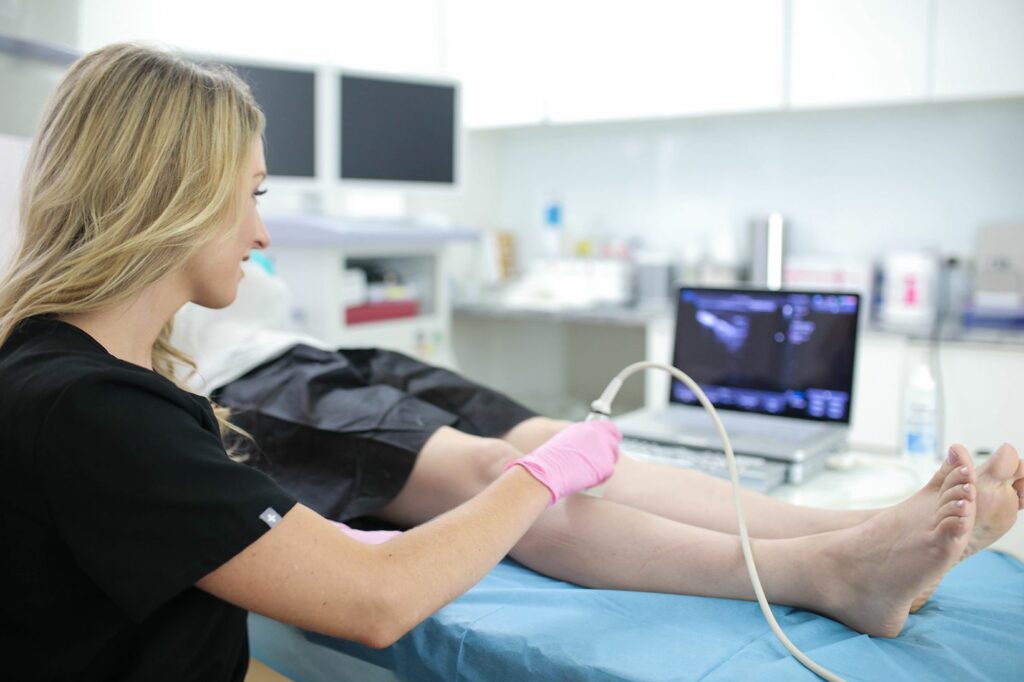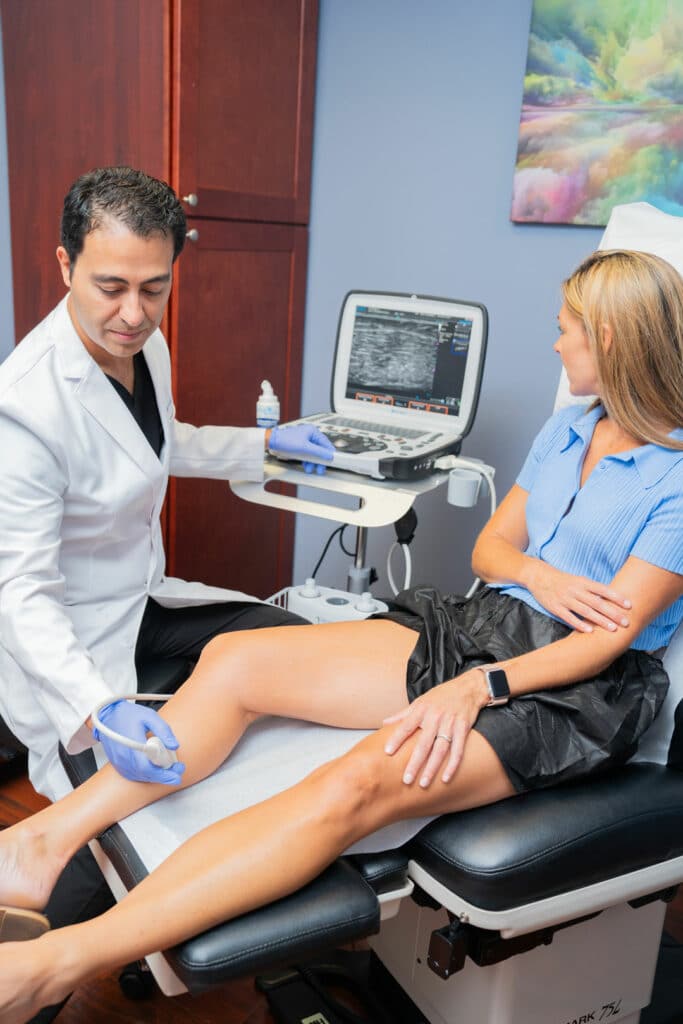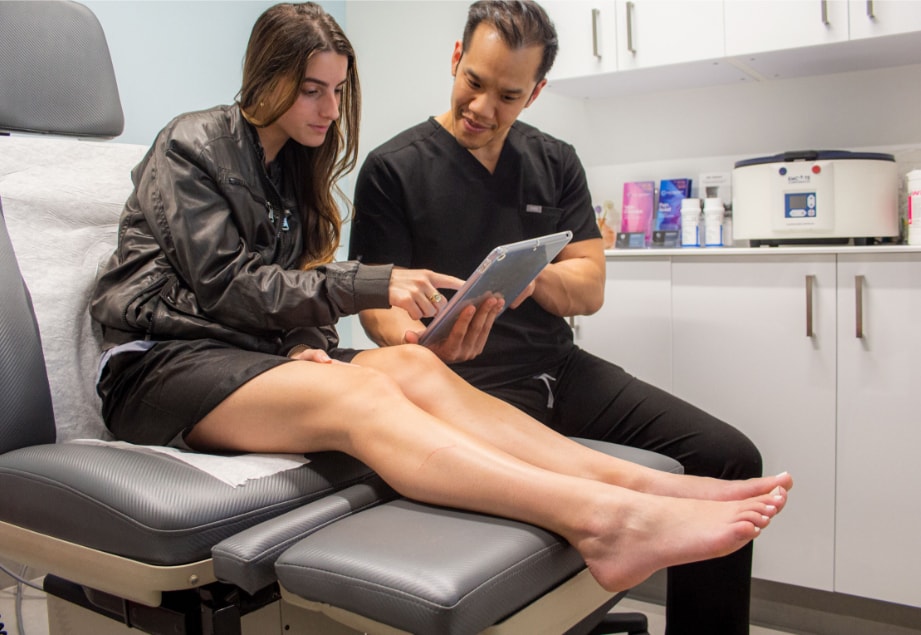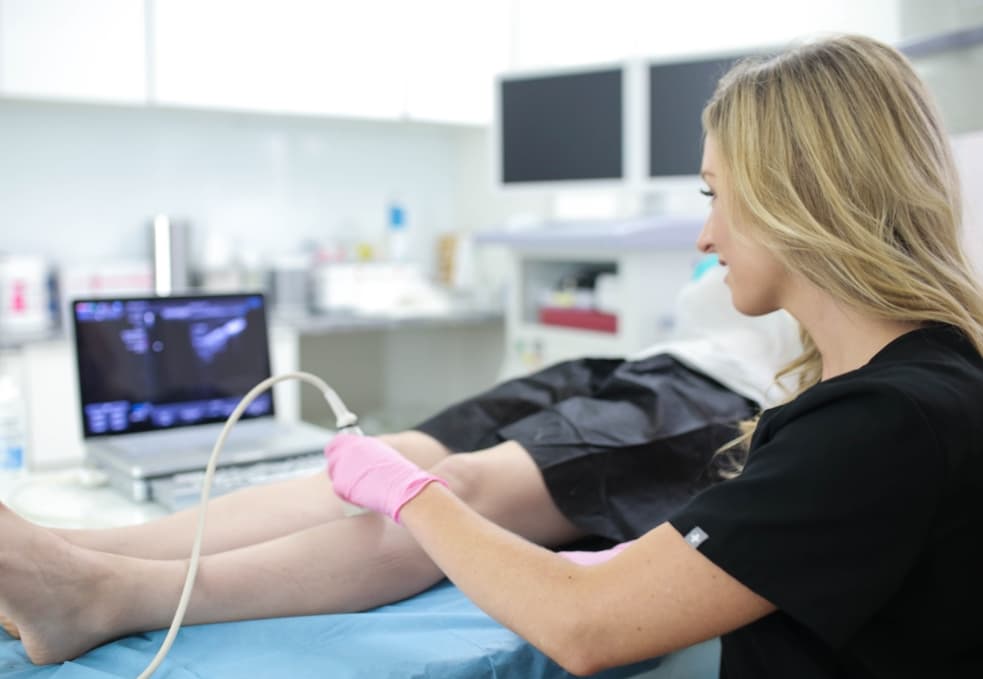What is a vascular surgeon called?
A vascular surgeon is a specialized medical doctor who specializes in diagnosing and treating diseases and conditions of the vascular system, which includes the blood vessels, veins, and arteries. They are also often called cardio-thoracic surgeons, vascular specialists, or cardiovascular-thoracic surgeons. These experts are knowledgeable in various procedures, from open surgery and endovascular procedures to minimally invasive treatments. They use the latest imaging techniques, such as ultrasound and CT scans, to improve diagnoses.
What’s the difference between peripheral arterial disease and chronic venous insufficiency?
Peripheral arterial disease (PAD) and chronic venous insufficiency (CVI) are both conditions involving the circulatory system. PAD is caused by a narrowing of the arteries due to fat buildup in the walls of the vessels, while CVI is caused by damage or malfunctioning of the valves in the veins. In both cases, circulation is impaired and can cause the affected area to become swollen, painful, and discolored. The main difference is that PAD affects arteries, while CVI affects veins. PAD can lead to strokes and heart attacks, while CVI can cause skin ulcers, varicose veins, deep vein thrombosis, and other complications.

How do I know if I have venous insufficiency?
Venous Insufficiency is a condition where the veins in the legs have trouble returning blood to the heart. This can cause various symptoms, including pain, swelling, cramps, fatigue, itching, and skin discoloration. The best way to determine if you have venous insufficiency is to consult your vein doctor. They will perform a physical examination, order blood tests, and follow up with a duplex ultrasound and/or a venogram.
During your physical exam, your vein doctor may check your pulses and palpate (feel) along your veins. They may also check for edema (swelling) and for any skin changes, such as a bruise or discoloration. When diagnosing venous insufficiency, the duplex ultrasound is the most accurate and reliable method. During this test, sound waves will be used to produce an image of the veins. It will provide a detailed look at the structure of your veins and the velocity of the blood flow.
If you have any signs or symptoms of venous insufficiency, such as leg pain, leg swelling, frequent leg cramps, fatigue, itching, skin discoloration, spider veins, varicose veins, or restless leg syndrome, please consult your vein doctor. Our vein center in Maryland is led by highly-skilled, board-certified vein doctors with specialized training in duplex ultrasound and the latest minimally invasive spider vein and varicose vein treatments. Our vein doctors will diagnose the root cause of your vein problems and curate a personalized treatment.
Our vein center in Maryland is located at 10215 Fernwood Rd, Suite 301, Bethesda, just outside Washington, DC, in Silver Spring. Please schedule an appointment at your nearest vein center in Maryland.
Who should I consult for vein problems?
If you’re dealing with painful, swollen veins, you may wonder who you should consult for help. The answer is a vein doctor or phlebologist. A highly-skilled medical doctor specializes in diagnosing and treating vein diseases, such as varicose veins, spider veins, chronic venous insufficiency, and venous ulcers.
Due to their extensive education and experience in the field, vein doctors have the expertise to provide the best possible care for any vein problems you may experience. They typically have extensive knowledge of vein disorders, the latest treatment options and technologies, and the intricate anatomy of the circulatory system.
When you visit a vein doctor, they perform a physical exam and take a medical history to diagnose the exact cause of your vein problems. They will discuss your treatment options with you, which may include lifestyle changes, medications, injections, sclerotherapy, laser ablation, and/or venaseal, depending on the severity of your condition.
In addition to providing the best possible medical solution for your vein issues, vein doctors also educate their patients about preventative measures to reduce their risk of developing vein problems. This may include dietary and lifestyle modifications, wearing supportive compression stockings when standing or sitting for long periods, and avoiding activities that put added pressure on the legs.
If you suffer from vein-related issues, please consult a qualified, board-certified vein doctor or phlebologist. A vein doctor will have the expertise to diagnose your condition, provide you with the best possible treatments, and advise you on ways to prevent future vein problems.
How do you know if you have a vein problem?
If you have achy or swollen legs, or you can see or feel a feeling of heaviness, throbbing, or restless legs in your legs, you might have a vein problem. Many vein problems can also cause discoloration, such as redness, bruise-like spots, or varicose veins. If any of these symptoms sound familiar, please talk to your vein doctor to find out if you have a vein problem.
What diseases make your veins more visible?
Having visible veins can indicate that something is wrong with our health. Veins become more visible when they are affected by various diseases that damage their function or structure.
The most common reason for veins to become more visible is a condition known as varicose veins. Varicose veins occur when the valves in veins weaken, causing blood to backflow and pool in the veins. This causes the veins to become enlarged and visible through the skin. Other conditions that can cause veins to become visible are deep vein thrombosis. DVT is a condition in which a blood clot forms in the veins of the legs. This condition can cause the veins to become more visible as the blood supply is impaired and the vessels become engorged.





